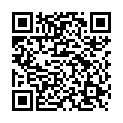|
|
|
| Module code: MBG21.B.51 |
|
|
3S (3 hours per week) |
|
3 |
| Semester: according to optional course list |
| Mandatory course: no |
Language of instruction:
German |
Assessment:
Course work
[updated 15.11.2021]
|
MBG21.B.51 (P311-0261) Management and Professional Pedagogy in Health Care, Bachelor, ASPO 01.10.2021
, optional course, general subject
|
45 class hours (= 33.75 clock hours) over a 15-week period.
The total student study time is 90 hours (equivalent to 3 ECTS credits).
There are therefore 56.25 hours available for class preparation and follow-up work and exam preparation.
|
Recommended prerequisites (modules):
MBG21-1 Academic Methodologies and Study Skills I
MBG21-14 Vocational Pedagogy in Health Care III
MBG21-18 Vocational Pedagogy in Health Care IV
MBG21-4 Vocational Pedagogy in Health Care I
MBG21-8 Vocational Pedagogy in Health Care II
[updated 30.05.2024]
|
Recommended as prerequisite for:
|
Module coordinator:
Studienleitung |
Lecturer:
Dr. Sindy Lautenschläger
[updated 30.05.2024]
|
Learning outcomes:
After successfully completing this module, students will have the following skills and competencies:
.
Knowledge and Comprehension:
Students will be able to describe the key concepts of different general and subject-specific didactic theories and models and identify their relevance to vocational education and training by way of example.
They will be able to compare the premises and implications of general and subject-specific didactic theories and models, as well as their consequences for the planning of teaching/learning processes.
They will be able to critically examine the state of research on (professional) didactic topics and issues and reflect on their consequences for vocational education.
They will be able to recognize the possibilities and limits of pedagogical work.
The Use, Application, and Generation of Knowledge:
Students will undertand the implications for putting (subject) didactic theories and models into action.
They will be able to assess the opportunities and the necessity of applying general and (subject) didactic theories and models in relation to teaching/learning situations.
They will be able to plan and design a teaching/learning situation taking into account relevant conditions.
They will be able to critically assess teaching/learning situations according to appropriate criteria.
Communication and Cooperation:
Students will be able to reflect on the role of other teachers in different teaching/learning situations from different perspectives.
They will be able to consider concepts of diversity in the context of planning and designing teaching/learning situations.
Scientific Self-Concept/Professionalism:
Students will be able to represent their own didactic points of view and decisions in a scientifically reflective manner.
They will be able to reflect on their role as a teacher, as well as the on role of the learners in teaching/learning situations.
They will be able to critically reflect on teaching/learning situations they have designed themselves with regard to expectations (their own/participants) and consequences.
1.
[updated 15.11.2021]
|
Module content:
Vocational and subject didactic models
2. Connection between general didactics and subject didactics
3. The challenge of subject orientation
4. Significance, limits and possibilities of nursing care didactics
5. Current state of research and discussions on specialized didactics in health care
6. Planning, designing, implementing and evaluating teaching/learning situations
[updated 15.11.2021]
|
Teaching methods/Media:
Blended learning
[updated 15.11.2021]
|
Recommended or required reading:
Recommended literature will be announced at the beginning of the course.
[updated 15.11.2021]
|

